Search the Special Collections and Archives Portal
Search Results
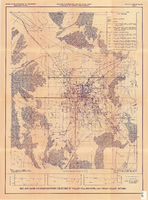
Map and basin profiles showing thickness of valley-fill deposits, Las Vegas Valley, Nevada, 1981
Date
Description
Image
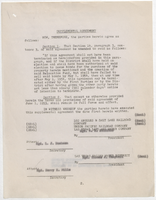
Supplemental agreement (blanks filled in) between Los Angeles & Salt Lake Railroad and partner companies and the Las Vegas Water District, C. L. D. No. 11342-1, 1954
Date
Archival Collection
Description
The purchase contract for the Las Vegas Land and Water Company allows for the contract to be annulled if its bonds are not sold by December 31, 1953. This contract rescinds that deadline, allowing as much time as needed for the sale of the bonds. Agreement that all parties will ignore the provision that any party can terminate the agreement if the bonds do not sell by May 1, 1954.
Text
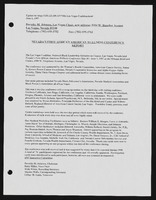
"Nevada's First African American Wellness Conference Report"
Date
Archival Collection
Description
From the Alpha Kappa Alpha Sorority, Incorporated, Theta Theta Omega Chapter Records (MS-01014) -- Chapter records file.
Text
Bill Schafer Papers
Identifier
Abstract
The Bill Schafer Papers (1980-2018) contain personal and professional papers of Las Vegas, Nevada journalist and publisher, Bill Schafer, and photographs from various LGBTQIA+ related events in Las Vegas. The materials include files related to Schafer's work managing the
Archival Collection

Transcript of an interview with Chris Ramirez by Wendy Starkweather on October 2, 2013
Date
Archival Collection
Description
Text
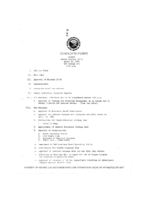
Meeting minutes for Consolidated Student Senate University of Nevada, Las Vegas, April 18, 1985
Date
Archival Collection
Description
Text

Transcript of interview with Horace Emery by Barry Sarles, March 2, 1980
Date
Description
On March 2, 1980, Barry Sarles interviewed river boatman and dam worker, Horace Emery (born 1911 in California) at his older brother’s farm in Nelson, Nevada. This interview covers the local area around Nelson and the early events that helped shape the area. Also present during the interview, Barry Sarles’s girlfriend, Diane Dobaj and Horace’s older brother, Merl Emery. Mr. Sarles also discusses his work as a river boatman on the Colorado River, working on the Hoover and Davis Dams, and employment as a factory worker in Clark County.
Text
Punam Mathur (Elaine Wynn Foundation) oral history interview conducted by Kelliann Beavers and Elia Del Carmen Solano-Patricio: transcript
Date
Archival Collection
Description
From the Lincy Institute "Perspectives from the COVID-19 Pandemic" Oral History Project (MS-01178) -- Community organization interviews file.
Text
Maurine and Fred Wilson Papers
Identifier
Abstract
The Maurine and Fred Wilson Papers (1888-1991) contain family papers and the historical research of Fred Wilson. It includes correspondence between Maurine and Fred Wilson, as well as Maurine Wilson’s diaries, calendars, and materials related to her career as a music teacher. The collection also contains Fred Wilson’s research files about the history of Southern Nevada as well as the First Methodist Church in Las Vegas, Nevada.
Archival Collection
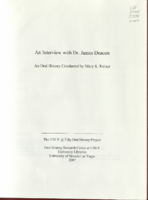
Transcript of interview with Dr. James Deacon by Mary K. Keiser, August 24, 2006
Date
Archival Collection
Description
Text
